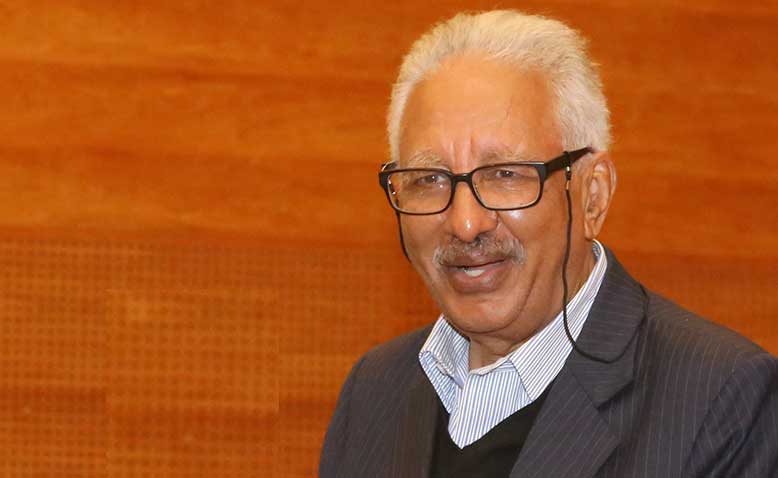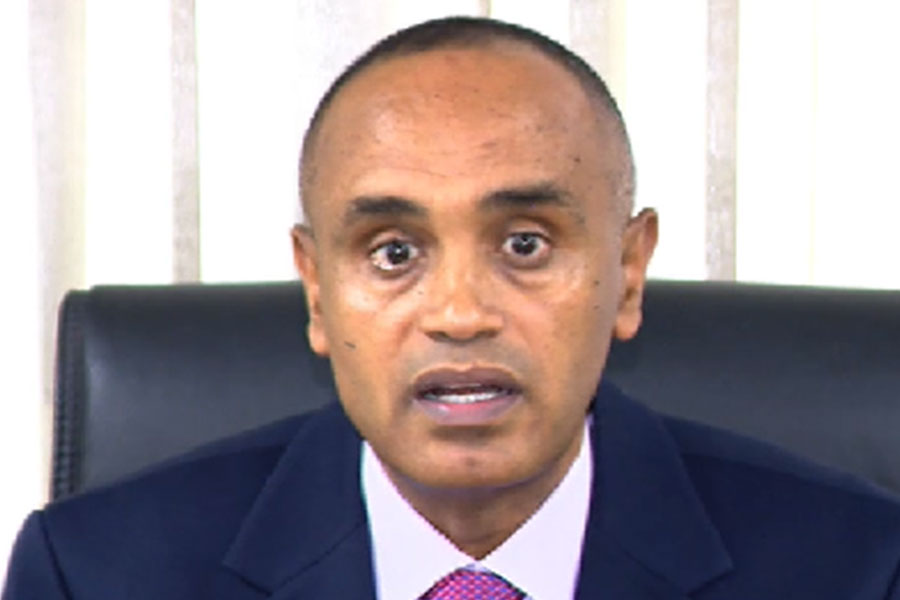
Verbatim | Aug 03,2019
Jul 10 , 2020
By Halima Abate (MD)
In the realm of public administration, it is the complex relationships within a society that magnify problems such as inefficiency and disparities between individuals and groups. Cultivating systematic approaches to fighting such limitations is beneficial, and one of these is effective dialogue, which opens the door to stimulative interactions in our effort to address problems.
Consistent dialogue among stakeholders inspires rational and desirable mutual understanding and relationships to confront shared public concerns and pave the way to a democratic decision-making processes.
Dialogue is a behavior of human interaction where exchanges of ideas or opinions transpire with an aim to reach an amicable agreement. By definition, this tool is indispensable to democratic processes where solutions are just as important to come from the bottom-up as they are from top-to-bottom. It is vital for successful relationship building and mutual understanding but much more crucial in the effort to question long-held assumptions and beliefs.
The exercise of dialogue transcends mere conversation making and serves as a conduit for social learning. But this requires authentic dialogue, which is a key normative component of public deliberation serving as a device to legitimate and construct the sense of the self and other, the community and logic. It is undeniable that compared with the attention given to the institutional side of authentic dialogue, less attention has been devoted to the human communicative behavior in terms of dialogue.
Hence, emphasising the emotional aspects of authentic dialogue will reveal how complex societal problems are confronted through emotional rather than logical means. Discussion on the basis of the understanding of human information processing motivation can lead to a better practice of deliberative democracy, which assures authentic dialogue galvanised by open-mindedness.
What needs to be highlighted here is the importance of criticism. What authentic dialogue requires is not merely being kind and open to opposing ideas but also being critical of what is being learned and discussed. It is also for reflection, shaping what would otherwise be an unmanageable plethora of subject matter, interpretation, inferences and behavioural shifts.
Contemplating the human communicative behavior of dialogue leads us to consider information processing motivations, which can be classified into epistemic, social and compassionate models.
The epistemic information processing motivation model is related to the collective decision-making process, which is crucial for generating legitimacy of the product. However, the degree of level of information processing may tilt to the preferences of the majority. It offers the path of least resistance by virtue of the likelihood that there would be few out there who can criticise the decision that is arrived at.
The social information motivation refers to the individual processes of outcomes either for the self, with the aim of advancing personal goals, or the social, to pursue group goals. The pro-self model could maintain distinct and sometimes even conflicting proclivities, whereas the pro-social attempts can deviate from the wants of the self and serves the public interest, which contributes and feeds back on collective decision-making.
The compassionate information motivation encompasses the willingness to respond empathically to situations as though the individuals were the affected party despite being safe from it.
The inter-connectedness among these three conceptual dimensions will be crucial to proving the insight into the type of leadership and management that is required to enhance the quality of public deliberation.
Political leaders should be cognisant of the human information motivation systems and how they work hand in hand with the values and communication systems within institution contexts. Notable is the importance of balancing these motivations with the problem at hand and the traditional decision-making process of communities.
Having a more nuanced understanding of the nature of deliberation allows us to more effectively leverage emotions and motivations to enable society to better understand one another in terms of their fundamental cultural values, differing ways of expressing themselves and interest.
PUBLISHED ON
Jul 10,2020 [ VOL
21 , NO
1054]


Verbatim | Aug 03,2019

Obituary | Feb 29,2020

Agenda | Oct 31,2020

Viewpoints | Apr 13,2019

Verbatim | Jan 13,2024

Verbatim | Oct 31,2020

Editorial | Sep 11,2020

Editorial | Nov 21,2020

Sunday with Eden | Aug 27,2022

Agenda | Aug 01,2020

My Opinion | 131584 Views | Aug 14,2021

My Opinion | 127940 Views | Aug 21,2021

My Opinion | 125915 Views | Sep 10,2021

My Opinion | 123539 Views | Aug 07,2021

Dec 22 , 2024 . By TIZITA SHEWAFERAW
Charged with transforming colossal state-owned enterprises into modern and competitiv...

Aug 18 , 2024 . By AKSAH ITALO
Although predictable Yonas Zerihun's job in the ride-hailing service is not immune to...

Jul 28 , 2024 . By TIZITA SHEWAFERAW
Unhabitual, perhaps too many, Samuel Gebreyohannes, 38, used to occasionally enjoy a couple of beers at breakfast. However, he recently swit...

Jul 13 , 2024 . By AKSAH ITALO
Investors who rely on tractors, trucks, and field vehicles for commuting, transporting commodities, and f...

Jun 28 , 2025
Meseret Damtie, the assertive auditor general, has never been shy about naming names...

Jun 21 , 2025
A well-worn adage says, “Budget is not destiny, but it is direction.” Examining t...

Jun 14 , 2025
Yet again, the Horn of Africa is bracing for trouble. A region already frayed by wars...

Jun 7 , 2025
Few promises shine brighter in Addis Abeba than the pledge of a roof for every family...

Jun 29 , 2025
Addis Abeba's first rains have coincided with a sweeping rise in private school tuition, prompting the city's education...

Jun 29 , 2025 . By BEZAWIT HULUAGER
Central Bank Governor Mamo Mihretu claimed a bold reconfiguration of monetary policy...

Jun 29 , 2025 . By BEZAWIT HULUAGER
The federal government is betting on a sweeping overhaul of the driver licensing regi...

Jun 29 , 2025 . By NAHOM AYELE
Gadaa Bank has listed 1.2 million shares on the Ethiopian Securities Exchange (ESX),...